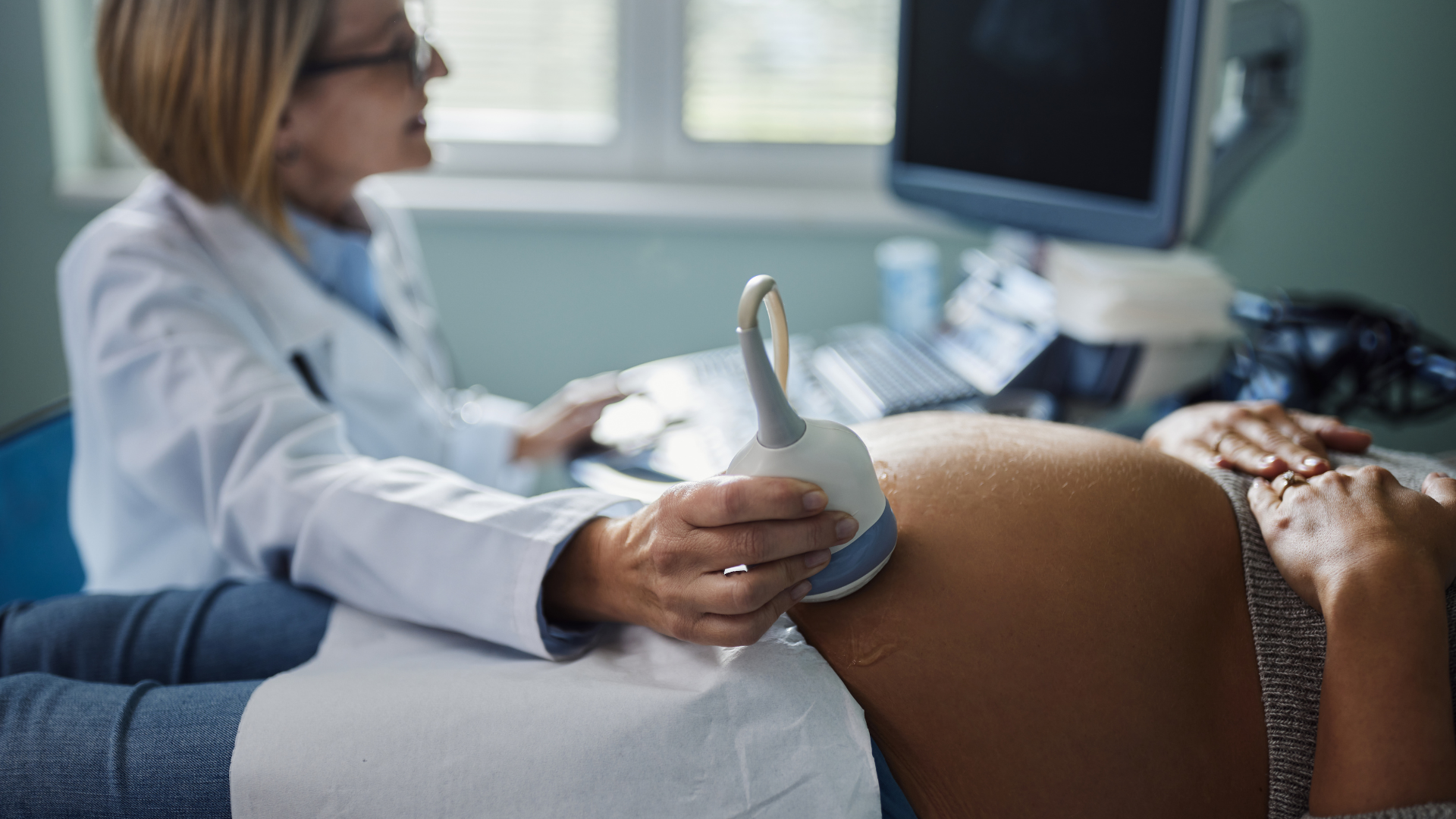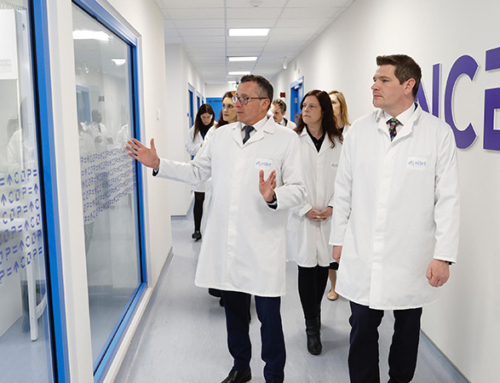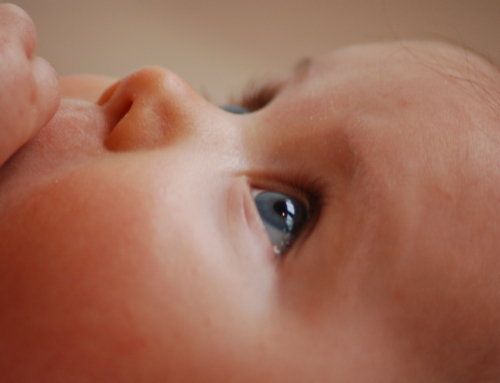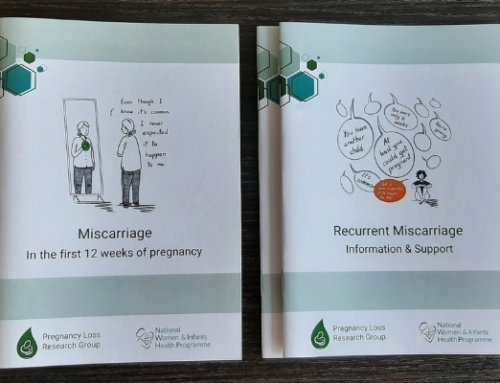4 in 5 Pregnant Women in Ireland are Iron Deficient by Third Trimester, a research study reveals
Worrying findings sparking call for action
Four out of five pregnant women in Ireland are iron deficient by their third trimester, a University College Cork (UCC) study reveals. Researchers at the Irish Centre for Maternal and Child Health Research (INFANT) and School of Food and Nutritional Sciences in UCC have shown that over 80% of women are iron deficient by their third trimester.
The findings raise concerns as the participants in the study were a low-risk and generally healthy cohort. Iron deficiency during pregnancy is linked to increased risks of complications for both mother and child, including neurodevelopmental challenges for the baby.
This study is the largest of its kind globally and was conducted in collaboration with the University of Minnesota and the Masonic Institute of the Developing Brain. Led by UCC’s Dr Elaine McCarthy, the study was published in the prestigious American Journal of Clinical Nutrition.
The study analysed data collected from 641 women in Ireland who were pregnant with their first baby and had a successful delivery. Blood samples were taken from the women throughout pregnancy, at 15, 20 and 33 weeks to determine iron status. “In Cork, which is a high-resource setting,” the authors found that “iron deficiency defined by a variety of markers was very common during pregnancy, despite the mothers being generally healthy.” Interestingly, despite these high rates of iron deficiency, none of the study participants were anemic in the first trimester. In particular, the authors noted that “our cohort had higher rates of deficiency in the third trimester than even some low-resource settings.”
In this study, almost three-quarters of the participants took an iron-containing supplement that contained the Irish/European recommended daily iron allowance of 15-17mg. The authors did note that “iron-containing supplements (mainly multivitamins) taken pre/early pregnancy were associated with a reduced risk of iron deficiency throughout pregnancy, including the third trimester.” The study did not have information on maternal diet, so it was not possible to investigate other dietary or lifestyle practices that were protective.
Lead researcher, Dr Elaine McCarthy from UCC’s INFANT Research Centre and the School of Food and Nutritional Sciences, explains the significance of the results:
“Iron deficiency is the most common micronutrient deficiency in the world, but it has often been thought of as mainly a problem in low-resource settings. Our research clearly illustrates that iron deficiency is extremely common amongst pregnant women, even in a generally healthy population, such as this cohort in Ireland, with greater than 80% of women iron deficient in their third trimester.”
A National Health Concern
Routine screening for iron deficiency during pregnancy is not common in Ireland or further afield and Dr McCarthy emphasises the need for a shift in healthcare practices:
“Our findings highlight the importance of screening to identify the women at the greatest risk of iron deficiency early in their pregnancy. In addition to this, we need to support and educate pregnant women around the importance of iron in their diets, something which we at UCC and colleagues in Cork University Maternity Hospital and the Ireland South Women and Infants Directorate are working on. We have a patient resource on iron during pregnancy launching in the coming months.”
Impact on Irish Families
Iron deficiency is associated with a higher risk of complications for both mother and child and can have long-term consequences on the child’s brain development, affecting cognition, behaviour and motor skills. Previous research from the team at UCC has shown that iron deficiency in early life is associated with behavioural problems at 5 years of age. This research highlights the value and urgent need for strategies to identify women at risk of iron deficiency during pregnancy. Such strategies can play a crucial role in reducing these health risks, benefiting families for generations to come, the researchers state.
Call for Policy Changes
Co-author Prof Michael Georgieff of the University of Minnesota echoes the call for urgent action:
“This data strongly supports a global policy that includes a systematic method of screening all women for iron status in early pregnancy with the goal of treating those that are frankly deficient or are below a threshold of sufficiency that will lead to deficiency during pregnancy. Part of medical practice has always been identifying nutritional deficiencies and addressing them. This study illustrates how incredibly common iron deficiency is in pregnant women even in the healthiest of populations and it is well documented that the rates are higher in less-well-resourced and unhealthier populations.”
With iron needs increasing nearly tenfold during pregnancy, expectant mothers are urged to focus on increasing the amount of iron in their diets. Iron is found in different foods including red meats like beef and lamb, green leafy vegetables, beans, nuts and dried fruit. However, while reminding women that the heme iron from animal sources is more easily absorbed than the non-heme iron found in plant-based sources, a wide-range of iron-rich food from both sources is important, when possible.
This research was funded through the European Union FP7 Framework and supported by the Health Research Board, link to the publication can be found: https://doi.org/10.1016/j.ajcnut.2024.08.010
News Coverage
- Examiner: https://www.irishexaminer.com/news/arid-41483410.html
- Journal.ie: https://www.thejournal.ie/iron-deficient-pregnancy-ireland-6497189-Sep2024/
- Newsweek: https://www.newsweek.com/pregnant-women-become-iron-deficient-staggering-says-doctor-1959294







